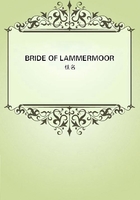
第118章
The same messenger was charged with a letter to Lady Ashton, deprecating any cause of displeasure which the Master might unintentionally have given her, enlarging upon his attachment to Miss Ashton, and the length to which it had proceeded, and conjuring the lady, as a Douglas in nature as well as in name, generously to forget ancient prejudices and misunderstandings, and to believe that the family had acquired a friend, and she herself a respectful and attached humble servant, in him who subscribed himself, "Edgar, Master of Ravenswood."A third letter Ravenswood addressed to Lucy, and the messenger was instructed to find some secret and secure means of delivering it into her own hands. It contained the strongest protestations of continued affection, and dwelt upon the approaching change of the writer's fortunes, as chiefly valuable by tending to remove the impediments to their union. He related the steps he had taken to overcome the prejudices of her parents, and especially of her mother, and expressed his hope they might prove effectual. If not, he still trusted that his absence from Scotland upon an important and honourable mission might give time for prejudices to die away; while he hoped and trusted Miss Ashton's constancy, on which he had the most implicit reliance, would baffle any effort that might be used to divert her attachment. Much more there was, which, however interesting to the lovers themselves, would afford the reader neither interest nor information. To each of these three letters the Master of Ravenswood received an answer, but by different means of conveyance, and certainly couched in very different styles.
Lady Ashton answered his leetter by his own messenger, who was not allowed to remain at Ravenswood a moment longer than she was engaged in penning these lines. "For the hand of Mr.
Ravenswood of Wolf's Crag--These:
"SIR, UNKNOWN:
"I have received a letter, signed 'Edgar, Master of Ravenswood,' concerning the writer whereof I am uncertain, seeing that the honours of such a family were forfeited for high reason in the person of Allan, late Lord Ravenswood. Sir, if you shall happen to be the person so subscribing yourself, you will please to know, that I claim the full interest of a parent in Miss Lucy Ashton, which I have disposed of irrevocably in behalf of a worthy person. And, sir, were this otherwise, I would not listen to a proposal from you, or any of your house, seeing their hand has been uniformly held up against the freedom of the subject and the immunities of God's kirk. Sir, it is not a flightering blink of prosperity which can change my constant opinion in this regard, seeing it has been my lot before now, like holy David, to see the wicked great in power and flourishing like a green bay-tree; nevertheless I passed, and they were not, and the place thereof knew them no more. Wishing you to lay these things to your heart for your own sake, so far as they may concern you, Ipray you to take no farther notice of her who desires to remain your unknown servant, "MARGARET DOUGLAS, "otherwise ASHTON."About two days after he had received this very unsatisfactory epistle, the Master of Ravenswood, while walking up the High Street of Edinburgh, was jostled by a person, in whom, as the man pulled off his hat to make an apology, he recognized Lockhard, the confidential domestic of Sir William Ashton. The man bowed, slipt a letter into his hand, and disappeared. The packet contained four close-written folios, from which, however, as is sometimes incident to the compositions of great lawyers, little could be extracted, excepting that the writer felt himself in a very puzzling predicament.